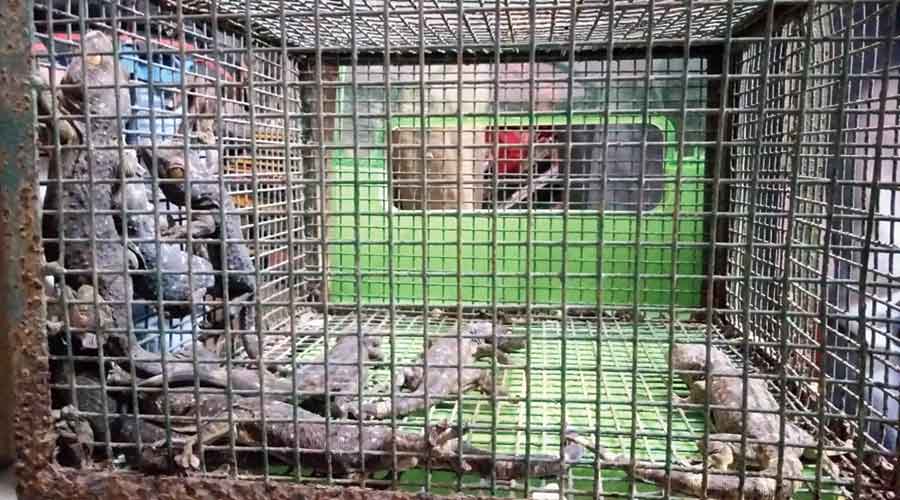Four deerskins and nine Tokay geckos were seized in two raids in Kultali and Namkhana in South 24-Parganas on Friday.
A forest department official said this confirms an active poaching racket was working in the Sundarbans.
Two of the deerskins were soaked in turmeric. “This indicates that those were fresh kills. The others were from relatively older kills. All four skins were seized from 62-year-old Manoranjan Jana, from Ukilerhat Namkhana,” a senior forest department official said.
During questioning, Jana said he and a few other men would set up snares in the Sundarbans to trap deer. “They would skin the trapped animals and keep the carcasses buried for several days before selling the meat to people they knew. They would not sell the meat to strangers for fear of getting caught,” the official said.
Based on a tip-off that some men were looking to sell deerskins, foresters from South 24-Parganas contacted Jana through their network. “After receiving confirmation that the skins were with him, we conducted a raid early on Friday and seized them. We arrested Jana, who had brought the skins,” said Milan Mondal, the divisional forest officer of South 24-Parganas.
Jana was part of a group that would venture deep into the mangroves to set snares and kill animals and birds, another forest department official said. “We are trying to track down the other members of the poaching ring,” he said.
Another team from the same division, based on information they had received, contacted four men who were looking to sell Tokay geckos.

The Tokay geckos Telegraph picture
The geckos were seized from a house in Kantamari in Kultali, where the men had gathered to sell them. The four — Asit Siuli, 30, Krishnapada Mondal, 36, Paritosh Naskar, 34, and Ardhendu Baidya, 35, all residents of Kultali — were arrested.
“Nine geckos were alive and one was dead. They were going to sell the dead one, too,” a forest official said.
The Tokay gecko is a species of Asian lizard characterised by orange spots on the skin and a shrill croak. The reptile is found in rainforests, particularly in the Northeast, apart from Nepal, Bangladesh, Indonesia, the Philippines and New Guinea. It is protected under Schedule IV of the Wildlife Protection Act (WPA), 1972.
“The Wildlife (Protection) Act, 1972 bans wildlife trade but wildlife poaching and trafficking has become a multi-billion dollar trade. Southeast Asia is the largest market for wild animals and birds from India and Calcutta is a key point in the corridor,” a forest official said.










